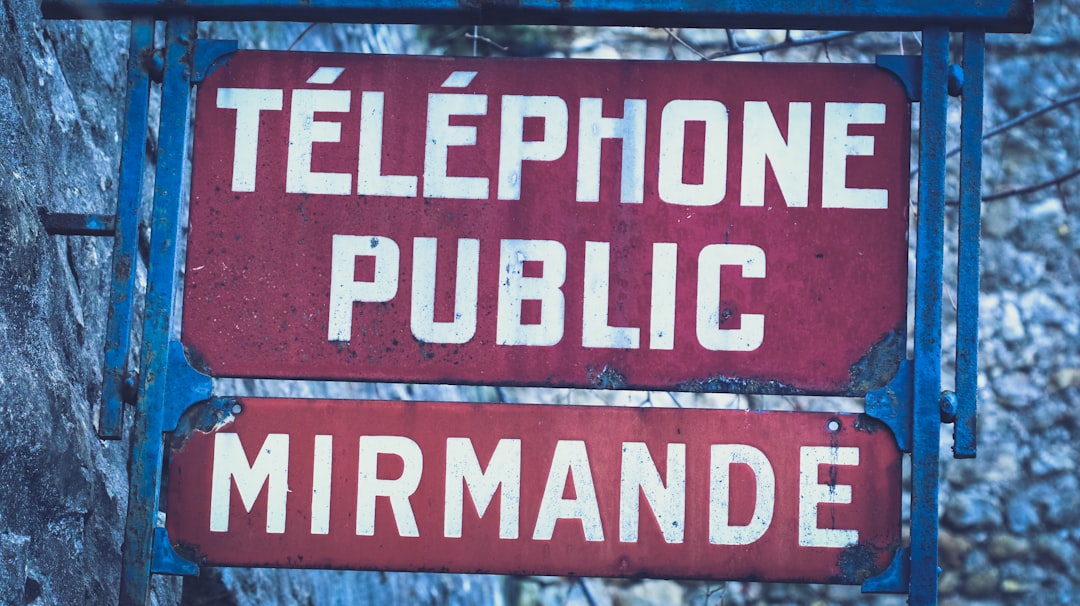Robocalls have become a prevalent and often irritating problem for Hazelwood residents, ranging from legitimate updates to scam attempts. To combat this, residents can use advanced call-blocking apps, consult a Do Not Call Attorney Missouri, and enroll in the state's Do Not Call List. These measures not only protect privacy but also empower individuals to manage their communication, reducing time wasted on unwanted calls. Specialized AI-powered services learn to recognize and block automated calls, while legal protections from the FTC ensure residents' rights are upheld.
Hazelwood residents often face a barrage of robocalls, disrupting their daily lives. This guide explores effective strategies to combat this issue. We delve into the impact of robocalls and how technology offers powerful solutions for prevention. From understanding call blocking tools to utilizing Missouri’s Do Not Call lists and exploring advanced smartphone apps, we provide a comprehensive toolkit. Additionally, we outline legal rights and actions against persistent robocallers, including the role of a Do Not Call Attorney in Missouri.
Understanding Robocalls and Their Impact on Hazelwood Residents

Robocalls have become a ubiquitous and often annoying aspect of modern life for Hazelwood residents, like many others across the country. These automated phone calls, typically delivered in bulk via dialer software, can range from marketing messages to scam attempts. While some robocalls offer valuable services, such as updates from local government or important reminders from schools, many residents find them intrusive and frustrating, especially when they’re not expecting them. The sheer volume of these calls can lead to increased stress and decreased quality of life.
In response to this growing concern, Hazelwood residents have a powerful tool at their disposal: technology. By leveraging advanced blocking apps, call-identifying software, and even consulting with a Do Not Call Attorney Missouri, residents can take proactive steps to minimize the impact of robocalls. These solutions not only help protect personal privacy but also foster a sense of control over one’s communication channels, ensuring that valuable time isn’t wasted on unwanted calls.
The Role of Technology in Blocking Unwanted Calls

Technology plays a pivotal role in empowering Hazelwood residents to reclaim control over their phone lines and combat the incessant barrage of robocalls. Advanced call-blocking applications and software have emerged as powerful tools, allowing users to filter out unwanted calls from telemarketers, scammers, and other nuisance callers. These innovative solutions often utilize sophisticated algorithms and databases to identify and block incoming calls based on predefined criteria, such as caller ID, call patterns, and known robocall hotspots.
One effective strategy is for residents to consult with a Do Not Call Attorney Missouri to understand their legal rights and explore technical solutions. Many reputable companies offer call-blocking services that integrate seamlessly with home phone systems or mobile devices. By employing these technologies, Hazelwood residents can significantly reduce the number of robocalls they receive, enhancing their overall communication experience and safeguarding them from potential scams.
Utilizing Do Not Call Lists and Registries in Missouri

In Missouri, residents have a powerful tool at their disposal to combat unwanted robocalls—the Do Not Call List (DNC). This state-managed registry is designed to protect consumers from nuisance calls, including those from telemarketers and scammers. By registering their phone numbers on this list, Hazelwood residents can significantly reduce the number of automated calls they receive. It’s a simple yet effective step that empowers individuals to take control of their communication preferences.
A Do Not Call Attorney in Missouri can guide residents through the process of enrolling in this service, ensuring their rights are protected. This registry is not just a list; it’s a legal mechanism that prohibits listed numbers from receiving most outbound marketing calls. This measure offers substantial relief for busy individuals and families who often find themselves on the receiving end of countless promotional messages.
Advanced Tools and Apps for Smartphones: A Comprehensive Guide

In today’s digital era, smartphone users have access to a plethora of advanced tools and apps designed to combat unwanted robocalls, offering Hazelwood residents a comprehensive guide to reclaiming their communication channels. One effective solution involves utilizing specialized do-not-call attorney services in Missouri, which can block automated calls from specific numbers or categories. These services, often powered by AI, learn to recognize and filter out robocalls, ensuring that only legitimate contacts reach your phone.
Many apps in the market provide robust call screening and blocking features, sometimes integrated with machine learning algorithms. They analyze caller IDs, detect patterns associated with spam calls, and offer options to block or report these numbers. Some popular choices also allow users to create custom blocks for specific types of calls, such as marketing or survey robocalls, providing a tailored approach to managing unwanted communications.
Legal Rights and Actions Against Robocallers: What You Should Know (Do Not Call Attorney Missouri)

Hazelwood residents, like all citizens across the country, have legal protections against unwanted robocalls thanks to the Do Not Call Registry and laws enforced by the Federal Trade Commission (FTC). If you’re facing a deluge of automated calls, taking action is within your rights. A crucial step is registering your number with the National Do Not Call Registry, which prohibits telemarketers from calling you without prior consent.
In Missouri, Do Not Call Attorney Missouri plays a vital role in upholding these protections. They can help residents understand their legal standing against robocallers and take measures to stop unwanted calls. This may include filing complaints with the FTC, seeking legal advice on blocking specific numbers, or even pursuing legal action against persistent or malicious robocallers. Understanding your rights is empowering; don’t hesitate to reach out for assistance if you feel these protections have been violated.






